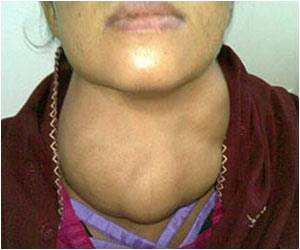
‘Some helpful and challenging aspects of the new Management Guidelines were discussed at the 2015 American Thyroid Association Management Guidelines for Adult Patients with Thyroid Nodules and Differentiated Thyroid Cancer.’
Tweet it Now
The panelists, some of whom were members of the American Thyroid Association Guidelines Task Force on Thyroid Nodules and Differentiated Thyroid Cancer, discussed what they viewed to be the most helpful and the most challenging aspects of the new Management Guidelines, which include eight new questions, 21 new recommendations, and 21 recommendations that were significantly changed from the 2009 Guidelines. The spirited and informative discussion focused on topics such as when to perform total thyroidectomy versus lobectomy, when to use radioiodine therapy, stratifying management based on response to therapy, and how to manage patients when cytologic analysis of a tumor sample yields indeterminate results. Peter A. Kopp, Editor-in-Chief of Thyroid and Associate Professor of Medicine, Division of Endocrinology, Metabolism, and Molecular Medicine, Northwestern University Feinberg School of Medicine, Chicago, said, "The guidelines provide a comprehensive framework for the state-of-the-art evaluation, treatment, and surveillance of patients presenting with thyroid nodules and thyroid cancer. Compared to the previous version, the updated guidelines integrate an impressive amount of new information and significant advances in the field. While these guidelines form a solid basis for our approach to these common clinical problems, the roundtable discussion and the guidelines also highlight areas that are in need of further investigation and refinements in the future."
Source-Eurekalert













